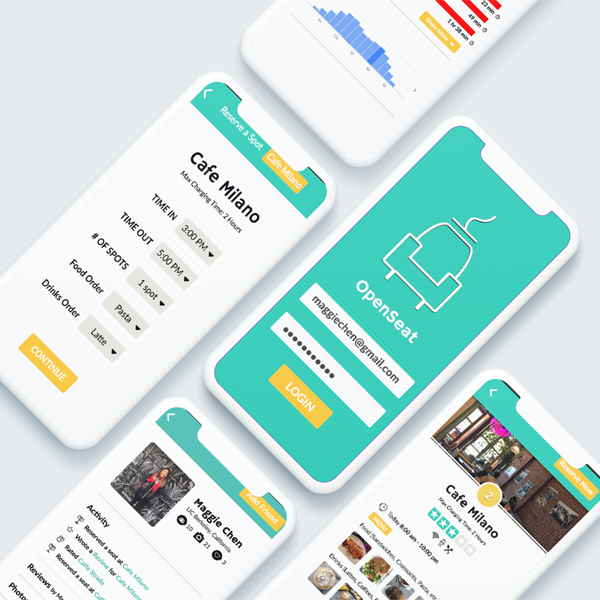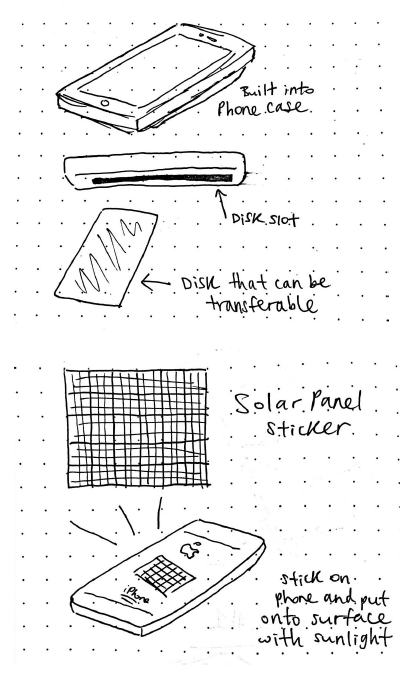OpenSeat
Product Design (INDENG 190E, UC Berkeley)
I worked in a multidisciplinary team with 4 other UC Berkeley students in coming up with a product to solve an identified user painpoint, leading to the design of OpenSeat.
This class was conducted by Rachel S. Powers, who has experiences as a UX lead in companies such as Apple and Walt Disney.
Team:
Elizabeth Zhou, Nathan Khuu, Cathy Meng, Tony Lee, Steph Tan Shi Tong (Myself)
Role:
Product Designer, UI/UX, Business Strategy

"How might we improve the charging experience so that charging is made more accessible and convenient for people?"
Initial Phase - Empathising and Defining the Problem
We did initial user interviews and research to validate our hypothesis on how people are currently charging their phones. This includes observing the process of what people will do when they run out of battery, and how they charge their phone on a daily basis.
We noted key pain-points which are:
• Bulky portable charges which are heavy and inconvenient to carry
• People often forget to bring their chargers out with them (as it is an additional carry-on item)
• Need to always recharge the portable charger when it runs out of battery (forgetting to do so would render it useless)
we brainstormed on ideas to improve the current
Understanding Stakeholders Involved
Initial Ideation
Hence, we considered ideas such as using Solar Energy/Kinetic Energy and even P2P charging to enable on-the-go storing of electrical energy in the portable charger.
Our preliminary product sketches aimed to design a product that is
• Convenient (lightweight), easily attachable to mobile devices that users carry daily
• Transferrable disk that allows sharing of energy between friends when someone's battery runs out
• Utilizes solar energy (with more efficient conversion of energy) which is readily available
we brainstormed on ideas to improve the current

Upon testing our prototyped idea, we identified a bigger painpoint - people are looking for charging sockets for their laptops because most work is being done on them, however, these are usually unavailable.
Hence we pivoted our problem statement.
"How might we improve charging spots accessibility for university students?"
User Journey Mapping
We mapped out the user journey to better understand the problem
Mockups

